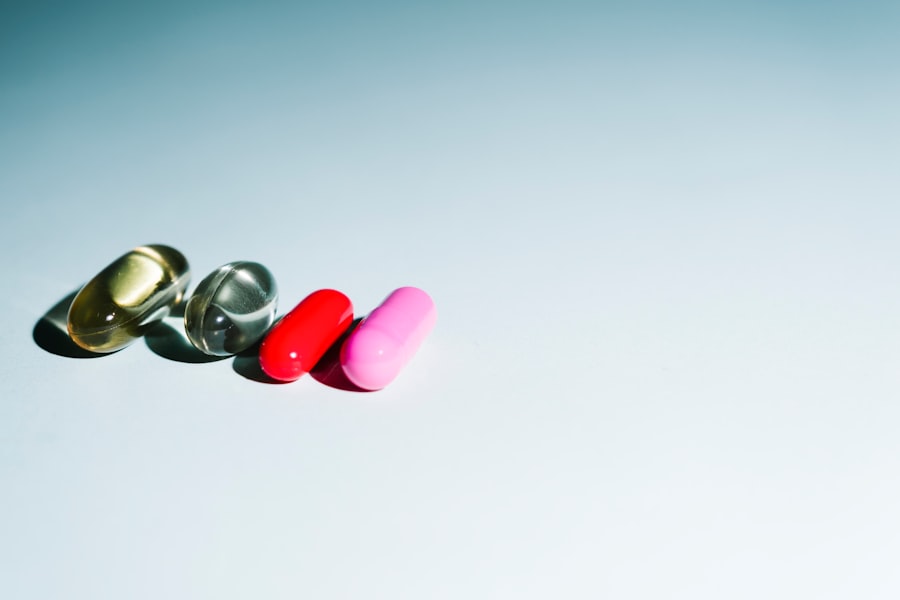Placebo refers to a substance or treatment that has no therapeutic effect but is often used in clinical settings to assess the efficacy of new medications or therapies. You might think of a placebo as a “sugar pill”—a non-active treatment that can sometimes lead to real changes in a patient’s condition simply because they believe they are receiving treatment. This phenomenon is known as the placebo effect, where a person’s symptoms can improve due to their expectations rather than any active ingredient in the treatment.
The concept of placebo is not just limited to pills; it can also encompass procedures, injections, or even the mere act of receiving care. Understanding placebo is crucial for both patients and healthcare providers. It highlights the power of the mind-body connection and how belief can influence physical health.
When you consider the placebo effect, it becomes clear that your perceptions and expectations can play a significant role in your overall well-being. This realization opens up new avenues for treatment and self-care, emphasizing the importance of mental and emotional states in the healing process.
Key Takeaways
- Placebo is a substance or treatment with no therapeutic effect, often used as a control in clinical trials.
- The concept of placebo has been around for centuries, with its use dating back to ancient civilizations.
- The science behind placebo involves the brain’s ability to produce real physiological responses to a placebo treatment.
- The placebo effect works through the mind-body connection, influencing perceptions and symptoms.
- Placebo is used in medicine and healthcare as a control in clinical trials and as a complementary treatment in some cases.
The History of Placebo
The history of placebo dates back centuries, with its roots intertwined with the evolution of medicine itself. In ancient times, healers often relied on rituals and natural remedies, many of which had little scientific backing. You might find it fascinating that even in these early practices, the belief in the treatment’s power was often enough to elicit a positive response from patients.
The term “placebo” itself comes from the Latin word meaning “I shall please,” reflecting the idea that the mere act of providing care can be beneficial. As medicine advanced, particularly during the 19th and 20th centuries, researchers began to recognize the importance of controlled studies to evaluate treatments. The use of placebos became more formalized during this period, especially with the advent of randomized controlled trials.
You may appreciate how this shift allowed scientists to differentiate between the actual effects of a drug and those resulting from patients’ expectations. This historical context underscores how our understanding of placebo has evolved alongside medical science, revealing its significance in both research and clinical practice.
The Science Behind Placebo

The science behind placebo is a fascinating intersection of psychology, neuroscience, and medicine. When you take a placebo, your brain can trigger real physiological changes in response to your expectations. Neuroimaging studies have shown that when individuals believe they are receiving treatment, their brains can release neurotransmitters like endorphins and dopamine, which are associated with pain relief and feelings of pleasure.
This biological response illustrates how powerful your mind can be in influencing your body’s reactions. Moreover, research has demonstrated that the effectiveness of a placebo can vary based on several factors, including the way it is presented and the context in which it is administered. For instance, you might find that a brightly colored pill or an injection feels more potent than a plain white tablet.
This suggests that not only your beliefs but also the surrounding environment and presentation can significantly impact the placebo effect. Understanding these scientific principles can empower you to harness the potential of placebo in your own life or within healthcare settings.
The Placebo Effect: How Does it Work?
| Study | Findings |
|---|---|
| Harvard Medical School Study | Placebo treatments can have a real impact on the brain and body, even if the patient knows it’s a placebo. |
| University of Michigan Study | Placebos can activate the brain’s natural painkillers. |
| University of Turin Study | Placebo treatments can lead to the release of dopamine in the brain, which can improve mood and reduce symptoms. |
The placebo effect operates through a complex interplay of psychological and physiological mechanisms. When you believe that a treatment will work, your brain activates pathways associated with healing and pain relief. This expectation can lead to real changes in your body, such as reduced pain perception or improved mood.
You may be surprised to learn that studies have shown that even when individuals know they are receiving a placebo, they can still experience benefits—an indication that belief alone can be a powerful catalyst for change. Additionally, conditioning plays a significant role in how the placebo effect manifests. If you have previously experienced relief from a particular treatment, your brain may associate that treatment with positive outcomes.
This learned response can trigger similar effects even when you receive a placebo instead. The power of suggestion cannot be underestimated; when you are told that something will help you, your brain may respond as if it truly is helping, leading to tangible improvements in your condition.
Placebo in Medicine and Healthcare
In medicine and healthcare, placebos serve as valuable tools for understanding treatment efficacy and patient responses. You might be surprised to learn that placebos are often used in clinical trials to establish a baseline for comparison against new drugs or therapies. By administering a placebo to one group while providing the actual treatment to another, researchers can determine whether observed effects are due to the treatment itself or simply the result of patients’ expectations.
Moreover, healthcare providers can utilize the principles of placebo in everyday practice. For instance, when you visit a doctor and receive reassurance or encouragement alongside your treatment plan, you may experience enhanced healing due to the positive expectations set by your provider. This highlights how effective communication and patient-provider relationships can amplify treatment outcomes, making it essential for healthcare professionals to be mindful of their approach.
The Psychology of Placebo

The psychology behind placebo is deeply rooted in human cognition and emotion. Your beliefs, attitudes, and past experiences all contribute to how you perceive treatments and their potential effectiveness. Cognitive biases, such as confirmation bias—where you tend to favor information that confirms your existing beliefs—can also play a role in shaping your response to placebos.
If you believe strongly in a particular treatment’s efficacy, you are more likely to experience positive outcomes. Furthermore, emotional states significantly influence how you respond to placebos. Stress and anxiety can dampen the placebo effect, while positive emotions can enhance it.
You may find it interesting that studies have shown that individuals who are more optimistic tend to experience stronger placebo responses than those who are pessimistic. This connection between psychology and physical health underscores the importance of mental well-being in achieving optimal health outcomes.
Ethical Considerations of Placebo Use
The use of placebos raises important ethical questions within medical practice and research. On one hand, placebos can provide significant benefits without exposing patients to harmful side effects; on the other hand, there is an ethical obligation to ensure informed consent and transparency in treatment options. You may grapple with the idea that administering a placebo without a patient’s knowledge could be seen as deceptive, potentially undermining trust between patients and healthcare providers.
In clinical trials, ethical guidelines often dictate how placebos should be used. Researchers must balance the need for rigorous testing with respect for participants’ autonomy and well-being. You might consider how this ethical dilemma extends beyond research settings into everyday medical practice—where healthcare providers must navigate the fine line between using placebos effectively while maintaining honesty with their patients.
Placebo in Clinical Trials
Placebos play a critical role in clinical trials by serving as control groups against which new treatments are tested. In these studies, participants are randomly assigned to receive either the experimental treatment or a placebo, allowing researchers to isolate the effects of the drug from those caused by participants’ expectations or psychological factors.
The use of placebos in clinical trials also raises questions about trial design and participant selection. Researchers must carefully consider factors such as blinding—where neither participants nor researchers know who receives which treatment—to minimize bias and ensure reliable results. As you reflect on this process, it becomes clear that placebos are not merely tools for testing; they are integral components of scientific inquiry that help shape our understanding of medicine.
The Role of Expectations in the Placebo Effect
Expectations play a pivotal role in determining the strength of the placebo effect. When you anticipate positive outcomes from a treatment—whether it’s due to prior experiences or information provided by healthcare professionals—your brain is primed to respond favorably. This expectation can activate neural pathways associated with pain relief and healing, leading to real physiological changes in your body.
You might be surprised by how much your mindset influences your health outcomes. Moreover, cultural factors can shape expectations surrounding treatments and their effectiveness. Different societies may have varying beliefs about health and healing, which can impact how individuals respond to placebos.
For instance, if you come from a culture that places high value on traditional healing practices, you may be more likely to experience strong placebo effects when receiving treatments aligned with those beliefs. Understanding these nuances can help you appreciate how deeply intertwined psychology and culture are with health.
Harnessing the Power of Placebo for Positive Change
Harnessing the power of placebo for positive change involves recognizing its potential benefits beyond traditional medical settings. You might consider how cultivating positive expectations can enhance your overall well-being—whether through self-care practices or lifestyle changes.
Incorporating elements of placebo into everyday life can also involve creating supportive environments that foster healing and positivity. Surrounding yourself with encouraging people or engaging in activities that promote relaxation and joy can amplify your body’s natural healing processes. By understanding how belief and expectation influence health, you can take proactive steps toward harnessing these principles for personal growth and well-being.
The Future of Placebo Research
The future of placebo research holds exciting possibilities as scientists continue to explore its mechanisms and applications across various fields. You may be intrigued by emerging studies investigating how genetic factors influence individual responses to placebos or how advancements in neuroimaging technology can provide deeper insights into brain activity during placebo responses. These developments could pave the way for personalized medicine approaches that leverage the power of expectation tailored to individual patients.
Additionally, as healthcare evolves toward more holistic models that integrate mental and physical health, understanding placebo will become increasingly important. Researchers may explore how combining traditional treatments with psychological interventions could enhance overall efficacy and patient satisfaction. As you look ahead, it’s clear that continued exploration into placebo will not only deepen our understanding of human health but also open new avenues for innovative treatments that prioritize both mind and body wellness.
In exploring the fascinating realm of placebo effect psychology, one might find it intriguing to delve into related discussions that shed light on the broader implications of this phenomenon. A particularly insightful article can be found on the Hey Did You Know This website, which offers a variety of perspectives on psychological phenomena and their impact on human behavior. For those interested in expanding their understanding, I recommend checking out this
